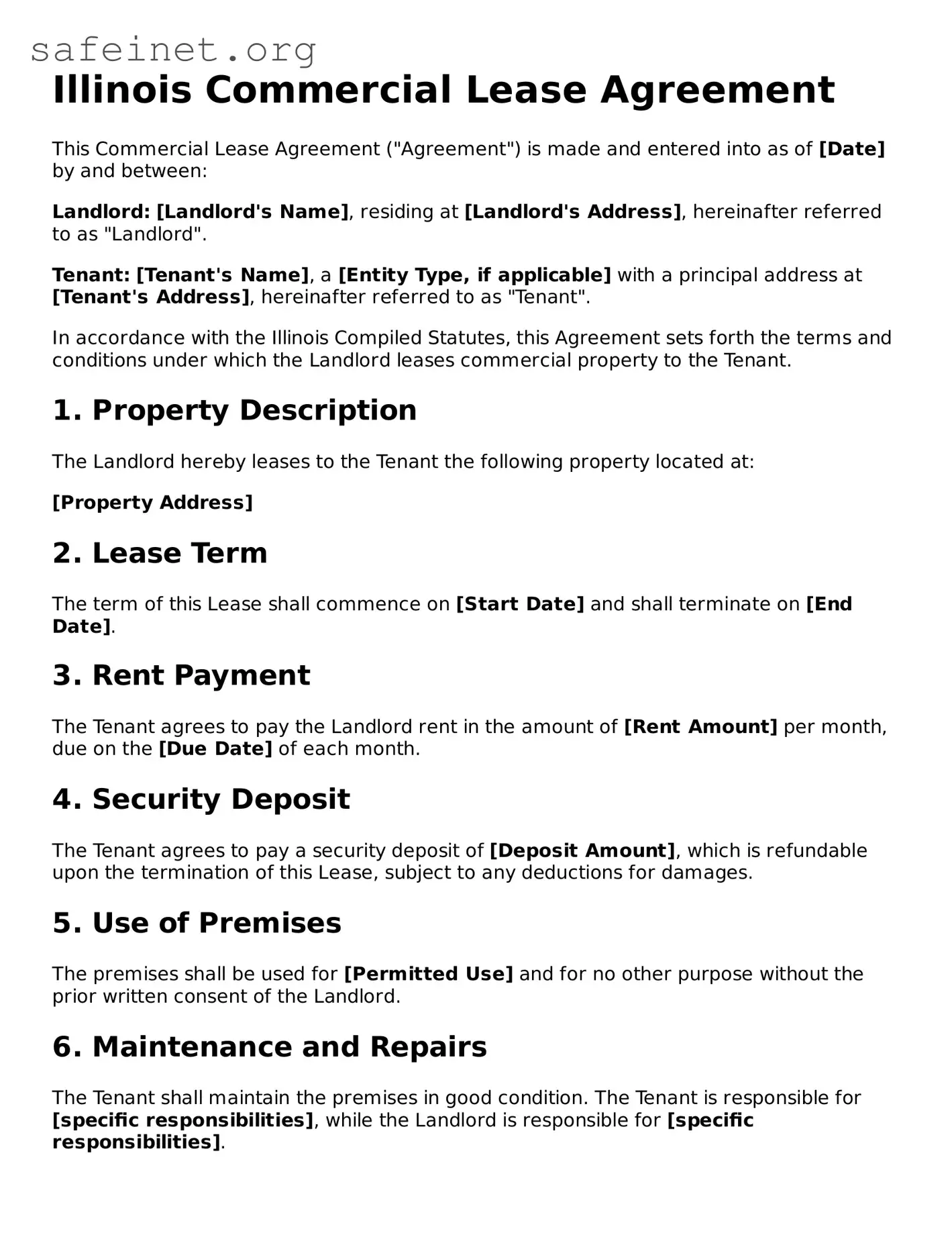Illinois Commercial Lease Agreement
This Commercial Lease Agreement ("Agreement") is made and entered into as of [Date] by and between:
Landlord: [Landlord's Name], residing at [Landlord's Address], hereinafter referred to as "Landlord".
Tenant: [Tenant's Name], a [Entity Type, if applicable] with a principal address at [Tenant's Address], hereinafter referred to as "Tenant".
In accordance with the Illinois Compiled Statutes, this Agreement sets forth the terms and conditions under which the Landlord leases commercial property to the Tenant.
1. Property Description
The Landlord hereby leases to the Tenant the following property located at:
[Property Address]
2. Lease Term
The term of this Lease shall commence on [Start Date] and shall terminate on [End Date].
3. Rent Payment
The Tenant agrees to pay the Landlord rent in the amount of [Rent Amount] per month, due on the [Due Date] of each month.
4. Security Deposit
The Tenant agrees to pay a security deposit of [Deposit Amount], which is refundable upon the termination of this Lease, subject to any deductions for damages.
5. Use of Premises
The premises shall be used for [Permitted Use] and for no other purpose without the prior written consent of the Landlord.
6. Maintenance and Repairs
The Tenant shall maintain the premises in good condition. The Tenant is responsible for [specific responsibilities], while the Landlord is responsible for [specific responsibilities].
7. Alterations
The Tenant shall not make any alterations to the premises without the prior written consent of the Landlord. All alterations, once approved, become the property of the Landlord upon lease termination.
8. Insurance
The Tenant is required to maintain liability insurance of not less than [Insurance Amount]. Proof of insurance must be provided to the Landlord.
9. Governing Law
This Agreement shall be governed by and construed in accordance with the laws of the State of Illinois.
10. Signatures
IN WITNESS WHEREOF, the parties hereto have executed this Lease as of the day and year first above written.
Landlord Signature: _______________________ Date: _______________
Tenant Signature: ________________________ Date: _______________
